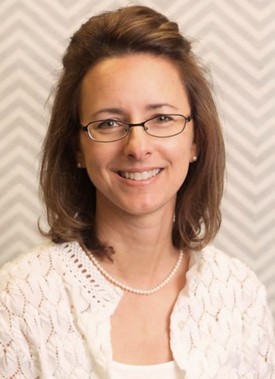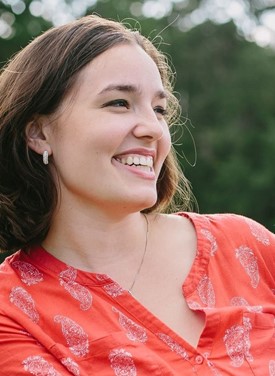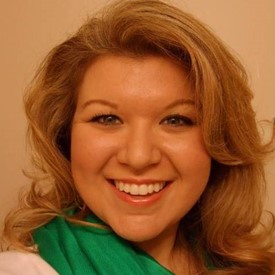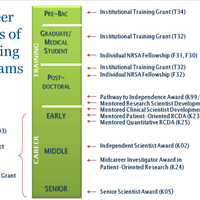Starting this fall, we will be posting weekly about upcoming events, resources on research and creative projects, fun things in the research community, and funding agency news… among other topics.
To start, we would like to introduce you to the staff that make up the Office of Proposal Development and tell you a little bit about what we do and who we are.
Stay tuned for our post next week!
-Beth, Kate, Mike and Grace
Beth Hodges

Position in OPD: Beth is the Director of the Office of Proposal Development.
How long she’s worked at FSU: She has been at FSU since the spring of 1997, and is coming up on 20 years—all within the Office of Research.
Where she went to college: Beth received her undergraduate degree (Psychology and Social Work double major) from FSU as well as her Master of Social Work degree.
One piece of advice to faculty: Study what you enjoy. If you are excited about your work, it will be evident in your proposals and you will (usually) enjoy greater success.
Favorite FSU moment: Sharing in the excitement of faculty who have received funding where OPD has played a role.
Favorite place in Tallahassee: Beth’s favorite place in Tallahassee is the St. Mark’s Trail.
When she’s not working on proposal development, you can find Beth…: Usually, home with her husband and dogs. If not there, she is with her husband biking, canoeing, traveling, or at church.
Kate Herron

Position in OPD: Kate is the Research Development and Training Specialist for OPD. She meets with the first year assistant professors, helps execute workshops and trainings across campus and sends targeted funding opportunities to faculty.
How long she’s worked at FSU: She has worked for Florida State University for the past three years, after working as an AmeriCorps volunteer and in career development for four years prior.
Where she went to college: Kate received her Bachelor’s degree at the University of Florida and just finished her Master of Social Work degree this past fall here at FSU.
One piece of advice to faculty: Always keep in mind the value of reaching beyond the walls of your area for potential collaborators, and advice.
Favorite FSU moment: Kate’s favorite FSU moment is graduating from FSU and officially becoming a bona fide Seminole!
Favorite place in Tallahassee: Her favorite place in Tallahassee is the Tallahassee Museum’s (aka Junior Museum) zip-line course.
When she’s not working on proposal development, you can find Kate…: Watching Disney movies with her two year old son or telling the same three jokes around the dinner table.
Mike Mitchell

Position in OPD: Mike is OPD’s Proposal Development Coordinator. Think of him as an all-purpose grants consultant. His primary role is to help PI’s coordinate large proposals, to free up their time to work on the research component.
How long he’s worked at FSU: Mike has been with FSU for 8 months. Prior to coming to FSU Mike was a Program Manager at the Florida Office of Energy working on Alternative Fuel Vehicles and Renewable Energy. He had successfully funded his projects through $17 million of grants from the US Department of Energy and US Department of Agriculture.
Where he went to college: Mike received his B.S. in Economics from FSU.
One piece of advice to faculty: A lot of people are intimidated by grant writing, but you don’t have to do it alone.
Favorite FSU moment: Mike always enjoys finding out that proposals that he coordinated or edited have been selected for funding.
Favorite place in Tallahassee: One of his favorite places is the 22nd floor of the capitol building. It’s the highest point in Tallahassee and has an amazing view of FSU, Cascades Park, and downtown. It’s open to the public on weekdays.
When he’s not working on proposal development, you can find Mike…: Dreaming about the Tesla Model 3.
Grace Adkison

Position in OPD: Grace is the Council on Research and Creativity Program Coordinator and assists the CRC by coordinating their efforts in granting over 150 internally-funded awards to faculty for use as “seed money” for their research.
How long she’s worked at FSU: She has been working at FSU for 5 years next month.
Where she went to college: Grace went to FSU and received her B.S. in Interior Design.
One piece of advice to faculty: Make sure you read the terms and conditions! This is vital to the success of your award! Pay especially close attention to budget requirements and deadlines. If you ever have a question, just ask the sponsor to clarify; it’s always better to know for certain what they are looking for than to guess and miss the opportunity to receive the award.
Favorite FSU moment: Her favorite (recent) FSU moment was when the football team won the National Championship after the perfect 2013 season. She’ll never forget staying up way too late, glued to the TV in that nail-biter of a game!
Favorite place in Tallahassee: One of Grace’s favorite places in Tallahassee is Dorothy B. Oven Park. She loves the peacefulness of the pathways and gardens, and, in the winter months, the decorations and lights are a must-see!
When she’s not working on proposal development, you can find Grace…: Working on her latest DIY project. From gardening to crafting to refinishing furniture, Grace always has a project (or 5!) that she’s working on.









